Latest News: Supreme Court debate over Trump’s tax returns, business records
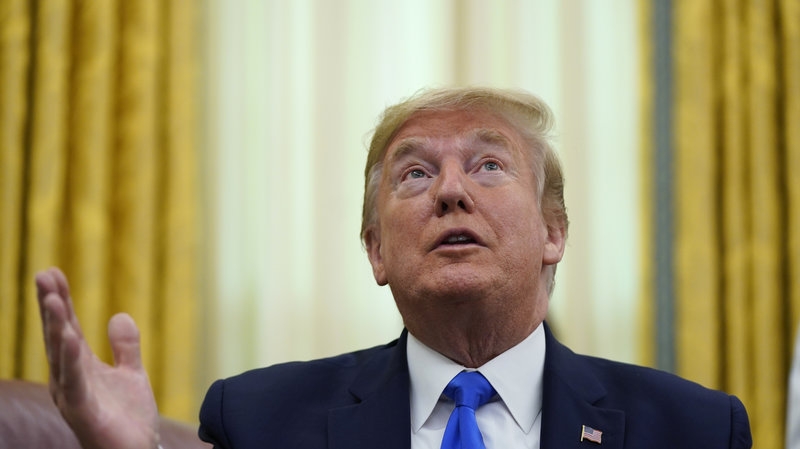 |
| President Trump's pre-presidential financial records were the subject of Tuesday's arguments before the Supreme Court. Evan Vucci/AP |
Supreme Court justices heard arguments Tuesday over whether President Trump's financial records must be turned over to Congress and New York investigators. Lawyers for the president contend that he should have immunity.
Both cases involve subpoenas for some of Trump's pre-presidential financial records. A pair of consolidated cases — Trump v. Mazars and Trump v. Deutsche Bank — ask whether Congress has the power to subpoena the president's personal records except during an impeachment proceeding. And a separate case — Trump v. Vance — addresses a New York grand jury subpoena for those same records in the course of a criminal investigation.
President Trump did not release his tax returns during the 2016 election and has not done so since, despite promising to do so.
Every president since Nixon, who was elected in 1968, had released tax information. But there is no legal compunction to do so.
Democrats in Congress are attempting to establish whether Trump is breaking ethics laws and constitutional safeguards against profiting from the presidency.
Supreme Court with first set of arguments
In the first set of arguments, justices pressed Trump's, the Justice Department's and congressional lawyers.
"At some point, there's a straw that breaks the camel's back," Justice Clarence Thomas said of the congressional position. "At some point, it debilitates the president."
But Justice Neil Gorsuch asked: "Why should we not defer to the House's view of its own legislative purposes?"
Justice Brett Kavanaugh asked: "How can we both protect the House's interest in obtaining information it needs to legislate, but also protect the presidency?"
Supreme Court with second set of arguments
In the second set of arguments, involving the New York grand jury subpoena, the justices pushed back against the arguments made by Jay Sekulow, the president's lawyer, that the president can't be investigated while he's in office.
That argument, said Justice Elena Kagan, challenges a "fundamental precept of our constitutional order is that the president is not above the law."
Lower courts ruled against Trump in all the cases, prompting an appeal from the president's private attorneys to the Supreme Court. A decision is expected by June, just in time for the presidential campaign to be moving into high gear.
The justices participated by teleconference because of social-distancing measures adopted amid the coronavirus outbreak, and the arguments were streamed live.
The first two cases, argued concurrently, pit the President's personal lawyers against House Democrats who say they need records from Trump's longtime accounting firm and two banks to investigate a variety of issues ranging from alleged hush money payments, illegal foreign involvement in a US campaign and potential violations of money laundering and ethics rules.
Trump's lawyers sued to block the subpoenas arguing that although they are directed to third parties -- Mazars USA, Deutsche Bank and Capital One -- they involve the President and members of his family and amount to an illegal fishing expedition. Democrats say they need the documents regardless of the fact the impeachment trial of the President earlier this year ended in acquittal.
| The court seemed prepared to send the case back to the lower courts to see whether the Vance subpoena seeks material that is essential to his investigation, would be available nowhere else and would not unduly burden the president from carrying out his official duties. Rulings in both cases are likely by the end of June or early July. But if the lower courts must take another look at whether the records that Trump has fought so hard not to turn over can be obtained by subpoena, a resolution wouldn't be likely for several more months, and certainly not before the November election |
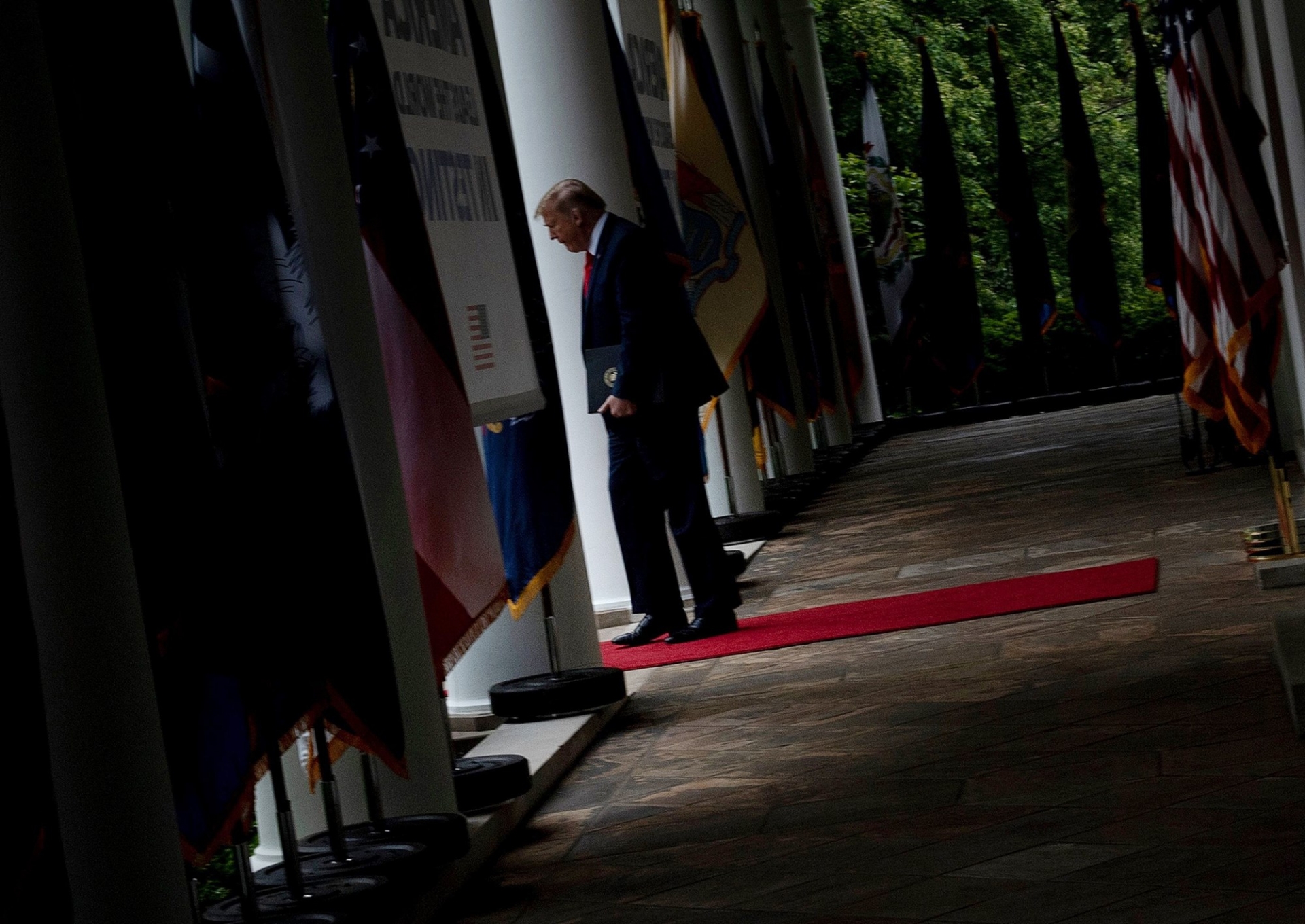 |
| President Donald Trump arrives for a news conference in the Rose Garden on May 11, 2020.Brendan Smialowski / AFP - Getty Images |
Supreme Court: three hours of argument by telephone conference call
The justices heard three hours of argument by telephone conference call, and lawyers for the president seemed to find more traction for their claim that Congress does not have unlimited authority to issue subpoenas, especially when a president may find it distracting to respond.
The Democratic majorities of three House committees are seeking several years' worth of financial records from Mazars, the Trump organization's accounting firm, and two banks that loaned money to Trump businesses, Capital One and Deutsche Bank.
House Democrats have said they believe the records might provide insights into a question special counsel Robert Mueller never answered: Did Trump borrow money from Russian entities or otherwise do business with them before he became president?
Patrick Strawbridge, representing Trump, said the Congressional committees went too far, because they can only subpoena material when considering specific legislation, not simply to conduct broad investigations.
"The power that they are seeking and the burden they will impose in the aggregate on the president will reshape and transform the balance of the separation of powers," he said.
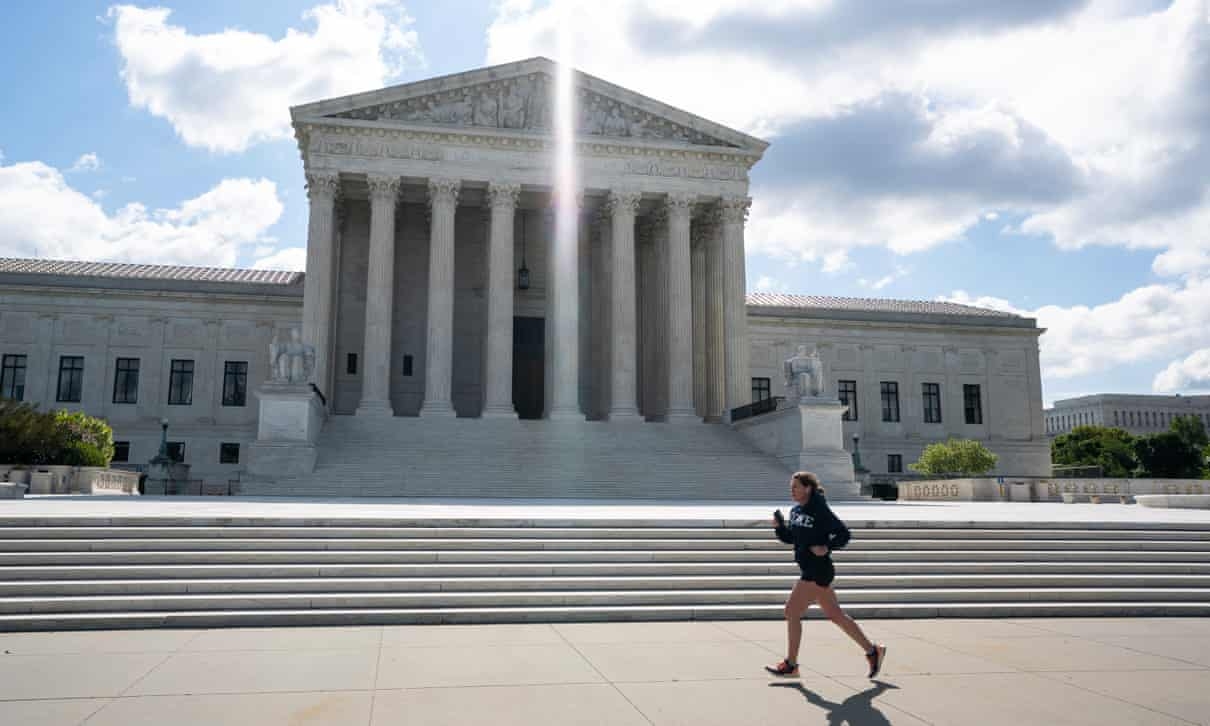 |
| The supreme court in Washington on Tuesday morning. The court is in its second week of working remotely because of the coronavirus pandemic. Photograph: Jim Lo Scalzo/EPA |
Several members of the court's conservative majority seemed to agree.
Justice Samuel Alito asked the the lawyers for the House, "In your view, there is really no protection against the use of congressional subpoenas for the purpose of preventing the harassment of a president because the only requirement is that the subpoena be relevant to a conceivable legislative purpose, and you can't think of a single example of a subpoena that wouldn't meet that test?"
That prospect seemed to concern even one of the court's liberals, Stephen Breyer.
"What I hold today will also apply to a future Senator McCarthy asking a future Franklin Roosevelt or Harry Truman exactly the same questions. That bothers me," Breyer said.
Other members of the liberal wing were more sympathetic to the congressional demands.
"The aura of this case is really sauce for the goose that serves the gander as well," said Justice Ruth Bader Ginsburg. "So how do you distinguish, say, Whitewater, when President Clinton's personal records were subpoenaed from his accountant, or even Hillary Clinton's law firm billing records were subpoenaed?"
| While a majority of the court seemed concerned that the Congressional demands sweep too broadly, seeking years of records from Trump and members of his family, it's possible the court could allow more narrow subpoenas for personal documents before he became president. But a clear majority seemed prepared to reject the president's position in the second case, in which his lawyers claimed that presidents are absolutely immune from any part of the criminal justice system, including a subpoena from a grand jury. Manhattan's district attorney, Cyrus Vance, is seeking Trump's tax records for an investigation of hush money payments made to two women who claimed they had affairs with Trump — allegations the president has consistently denied. Chief Justice John Roberts indicated that position was too limited. "It is OK for the grand jury to investigate, except it cannot use the traditional and most effective device that they have typically used, which is the subpoena?" he asked. And Justice Samuel Alito asked, "Suppose that the prosecutor has good reason to believe that the records are not available from any other source and a third party committed a crime?" |
Arguments were scheduled to be heard at the end of March but were delayed due to the pandemic. Decisions are expected this summer. Trump's personal lawyers and the Justice Department want the justices to reverse lower courts that have held that the subpoena could go forward.
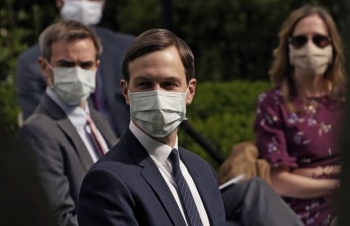 | White House requires staff to wear face masks [Photos] The White House has ordered staff to wear masks at all times except while working at their desks, a change in protocol that comes after ... |
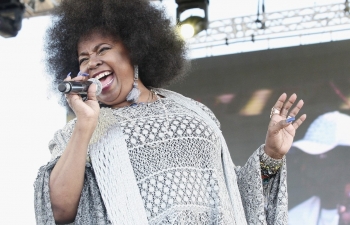 | World news today: Betty Wright passed away at 66, some Mother’s Day dinners turned into nightmares World news today May 11 sees the soul, funk and R&B singer Betty Wright succumbed to cancer Sunday at the age of 66. Meanwhile, some Mother’s Day ... |
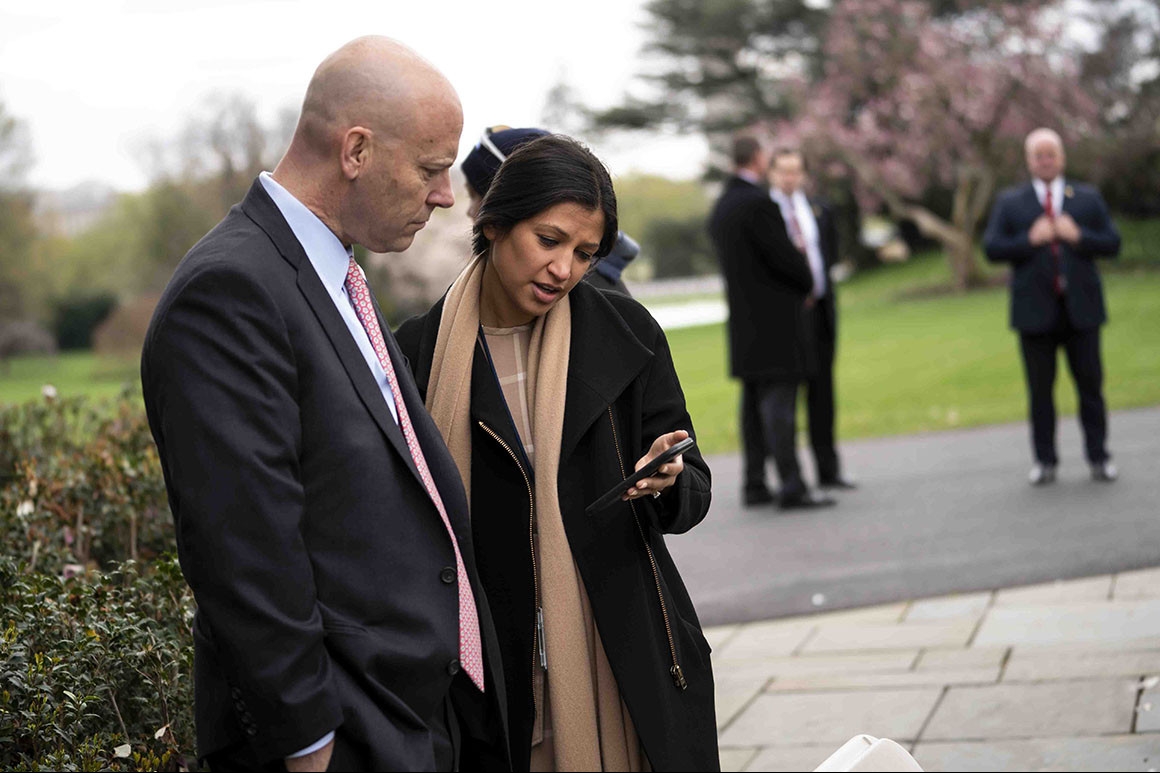 | Katie Miller, US Vice President’s spokeswoman, tests positive for coronavirus Katie Miller, a spokesperson for the US’ Vice President Mike Pence and wife of Trump adviser Stephen Miller, has tested positive for coronavirus on Friday ... |
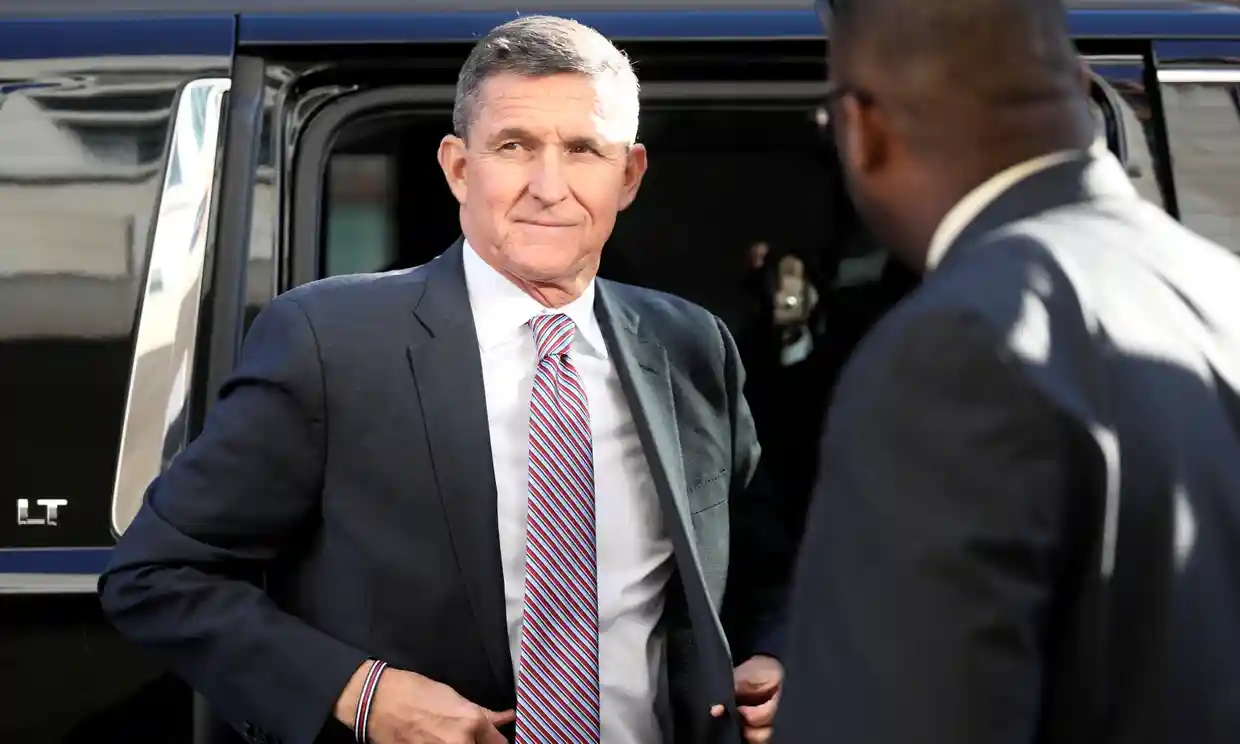 | Michael Flynn: Criminal case out, queries in New York Times reported on Thursday that the Justice Department (DOJ) is dropping the criminal case against the US’ former national security adviser Michael Flynn ... |
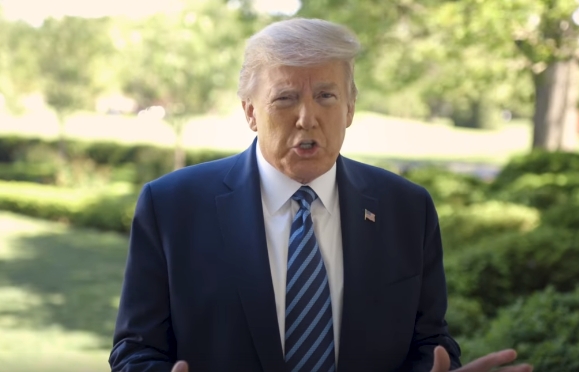 | President Trump proclaims 'We're Opening Up Our Country Again' President Donald Trump announced Thursday that the US is reopening after more than a month of lockdowns over the coronavirus fear, vowing that he will ... |
Recommended
 World
World
Pakistan NCRC report explores emerging child rights issues
 World
World
"India has right to defend herself against terror," says German Foreign Minister, endorses Op Sindoor
 World
World
‘We stand with India’: Japan, UAE back New Delhi over its global outreach against terror
 World
World
'Action Was Entirely Justifiable': Former US NSA John Bolton Backs India's Right After Pahalgam Attack
Popular article
 World
World
US, China Conclude Trade Talks with Positive Outcome
 World
World
Nifty, Sensex jumped more than 2% in opening as India-Pakistan tensions ease
 World
World
Easing of US-China Tariffs: Markets React Positively, Experts Remain Cautious
 World
World



